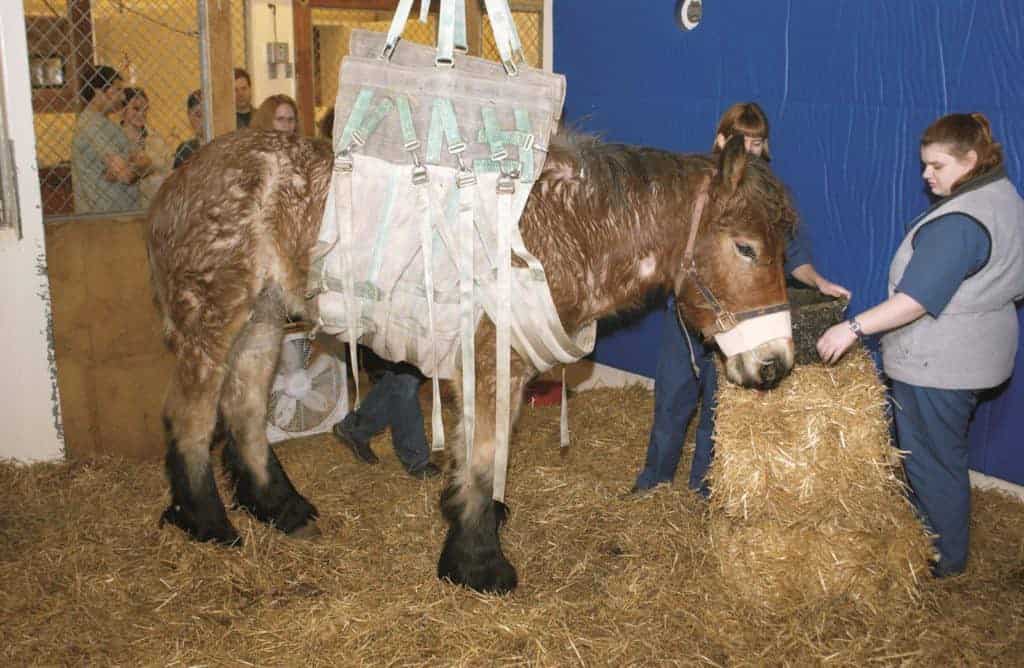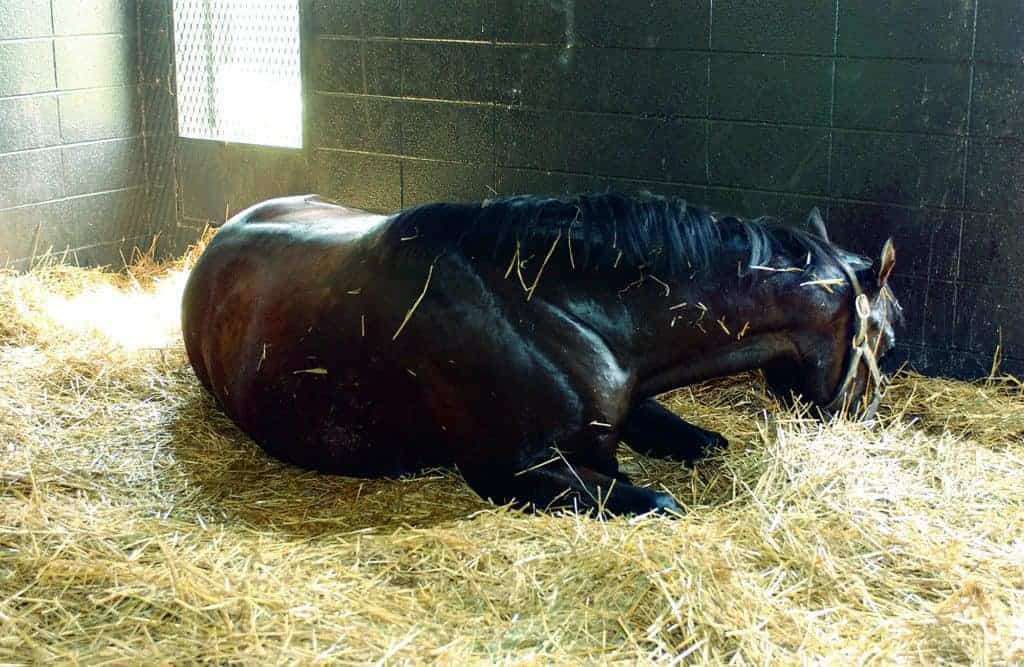
Botulism in Horses
Horses are highly susceptible to botulism, which causes neurologic disease and death. Download this free fact sheet to learn more!

Horses are highly susceptible to botulism, which causes neurologic disease and death. Download this free fact sheet to learn more!

Use this four-step plan to keep equine infectious diseases in check.

From toxins and molds to opossum droppings and animal carcasses, forage can contain a variety of harmful contaminants.

Learn about healthy foals, problems that are common in newborns, how veterinarians treat these issues, and more.

Learn how vaccines can protect horses, why they’re important, and which ones your horse needs in our visual guide.

Learn about 20 important equine infectious diseases that could make your horse sick, how they are spread, and ways to prevent them in our easy-to-follow visual guide.

Penn Vet researchers found that adult horses that retained the ability to stand had a 95% survival rate, while those that became recumbent had an 18% survival rate.

The toxins that cause this potentially fatal neurologic disease could be lurking in your horse’s environment or hay. Learn how to recognize and prevent botulism with this visual guide.

The most common way adult horses contract the disease is by eating feed, such as hay or grain, that contains animal remains.

Dr. Amy Johnson answers questions about Botulism in horses, where it is prevalent, and the different ways that horses can contract this deadly disease.

Dr. Amy Johnson explains the grain test she uses to test whether or not horses have botulism.

Learn how to protect your horses from this invisible, scentless killer.

Learn about current recommendations for diagnosis and treatment of this often deadly disease.

Horses with botulism often present as if they are colicking. Here is how to tell the difference.

Our veterinary experts answer your questions about botulism in horses, which can be deadly in adult animals.

Vaccination reduces horses’ risk of contracting tetanus and botulism, two often-fatal diseases.
Stay on top of the most recent Horse Health news with
"*" indicates required fields